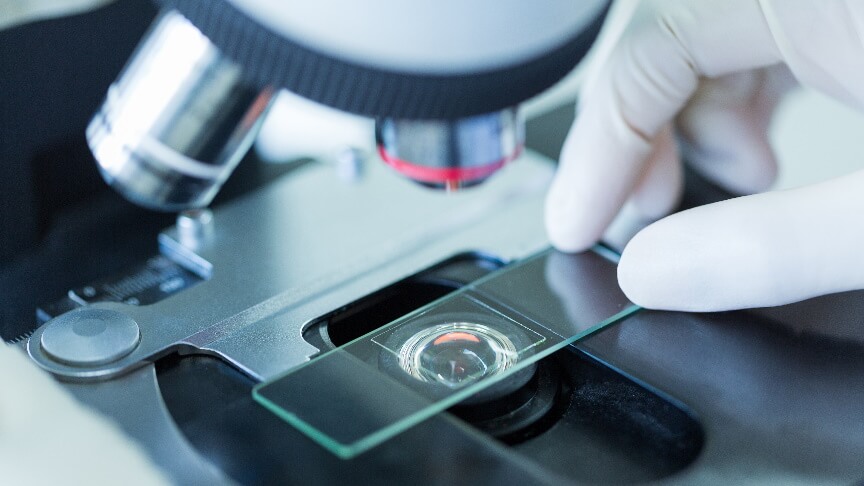Non-Small Cell Lung Cancer Genetic Markers
Non-Small Cell Lung Cancer Genetic Markers refer to the individual genes a patient's tumor exhibits. These genes can have a mutation or alteration that is either inherited from family or developed throughout their lifetime. These mutations can help physicians provide insight on the behavior and prognosis of the tumor.
In recent years, lung cancer has caused the most cancer deaths of any cancer type in the United States. Therefore, the need for new ways to treat lung cancer patients is crucial. Recently, personalized medicine has brought new hope to people with lung cancer, especially non-small cell lung cancer (NSCLC). Genetic testing should be a routine part of diagnosis and staging for all cancer patients who may benefit from new treatments.
What Role do Genetic Markers Have in Non-Small Cell Lung Cancer?
Comprehensive biomarker testing can help cancer patients identify which mutations they have inherited or developed that will affect their cancer prognosis. To perform this test, a biopsy of the lung or a blood specimen is taken and the genetic makeup of the tissue or blood is examined. By identifying a patient’s mutations, physicians can predict how the patient will respond to targeted therapies.
Physicians look at the genetic makeup of the tumor to understand why the cancer is growing and spreading. Not all lung cancer cases are caused by genetic mutations, but genomic testing should be considered to determine if genetic mutations do play a role. Targeted therapies are designed to target mutation-positive tumors and many times the side effects are less harsh than those associated with many chemotherapies.
What Are Non-Small Cell Lung Cancer Genetic Markers?
There have been several markers identified that can affect the prognosis of non-small cell lung cancer, however, research is ongoing and new gene mutations are being studied and identified year-round. The most common genetic markers for NSCLC that are currently being tested by clinical researchers include:
Epidermal growth factor receptor (EGFR): The first biomarker that was identified for its potential in personalized treatments for lung cancer. This biomarker is used in many different cancer types and its main function is to help cells grow and then divide. When a patient is EGFR positive, the gene does not work properly and will continue to cause abnormal cell growth within the tumor. Those who are more likely to be EGFR positive include:
- Patients with adenocarcinoma of the lung
- Non-smokers or those who have rarely smoked
- Young adults
- Patients of Asian ethnicity
FDA approved treatments for EGFR positive lung cancer are as follows:
- Afatinib (Gilotrif)
- Gefitinib (Iressa)
- Erlotinib (Tarceva)
- Osimertinib (Tagrisso)
- Necitumumaab (Portrazza)
- Dacomitinib (Vizimpro)
Anaplastic lymphoma kinase (ALK): This mutation occurs in roughly 1 out of 25 non-small cell lung cancer patients. When a mutation is present, this gene causes the DNA of lung cells to grow abnormally and behave like cancer cells. These cells can also spread to parts of the body other than the lung. Targeted therapies are very effective for patients with an ALK mutation. ALK mutations are noted to be the most treatable gene mutation. Treatments for ALK positive lung cancer patients include:
- Radiation therapy
- Traditional chemotherapy
- Some immunotherapies
- Targeted therapies
KRAS: Also identified in some colorectal and appendiceal cancers; this mutation occurs in about 1 out of 3 cases of lung adenocarcinoma. Since this is the newest biomarker identified for NSCLC, there are currently no FDA approved targeted therapies, although there are many ongoing studies that are testing the feasibility of new treatments. Cancer patients with KRAS mutations are thought to have lower survival rates due to lack of targeted therapies.
Other markers being monitored in clinical studies include:
- HER2
- MET
- RET
- ROS1
- IGF1R
- BRAF
- PIK3CA
- ERBB2
- PD-L1
Most of the research for these mutations is in the early stages of the approval process by the FDA through clinical trials. Therefore, it could be several years before there are approved treatments for other genetic markers.
Sources



